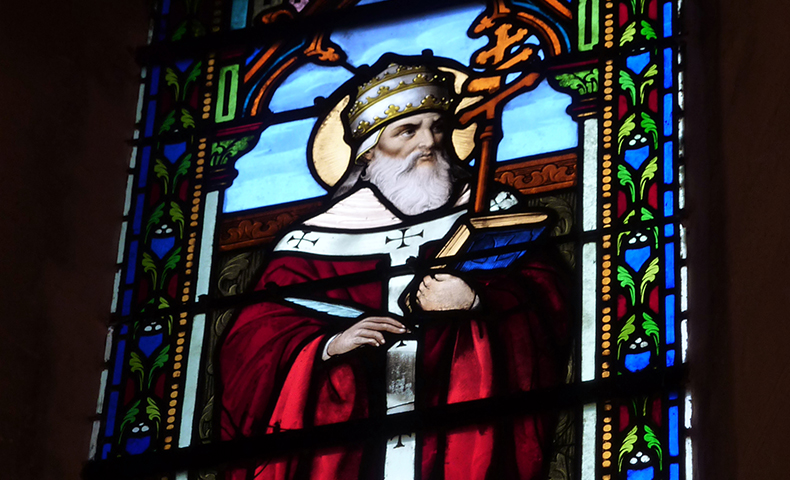San Cornelio, Saint of the day for 16 September

(d.253)
The history of San Cornelio
There was no pope for 14 months after the martyrdom of St Fabian due to the intensity of the persecution of the Church. During the intermission, the Church was governed by a college of priests. Saint Cyprian, a friend of Cornelius, writes that Cornelius was elected pope “by the judgment of God and of Christ, by the testimony of most of the clergy, by vote of the people, with the consent of elderly priests and good men. "
The biggest problem of Cornelius' two-year term as pope had to do with the Sacrament of Penance and focused on the readmission of Christians who had denied their faith during the time of persecution. In the end, two extremes were both condemned. Cyprian, primate of North Africa, appealed to the pope to confirm his position that the relapses could only be reconciled with the bishop's decision.
In Rome, however, Cornelius encountered the opposite point of view. After his election, a priest named Novatian (one of those who had ruled the Church) had a rival bishop of Rome, one of the first antipopes, consecrated. He denied that the Church had any power to reconcile not only apostates, but also those guilty of murder, adultery, fornication or second marriage! Cornelius had the support of most of the Church (especially Cyprian of Africa) in condemning the Novatian, although the sect persisted for several centuries. Cornelius held a synod in Rome in 251 and ordered that the "repeat offenders" be returned to the Church with the usual "medicines of repentance".
Cornelius and Cyprian's friendship was strained for a while when one of Cyprian's rivals brought charges against him. But the problem was solved.
A document by Cornelius shows the extension of the organization in the Church of Rome to the middle of the third century: 46 priests, seven deacons, seven sub-deacons. It is estimated that the number of Christians amounted to about 50.000. He died due to the labors of his exile in what is now Civitavecchia.
Reflection
It seems true enough to say that almost every possible false doctrine has been proposed at one time or another in the history of the Church. The third century saw the resolution of a problem that we hardly consider: the penance to be done before reconciliation with the Church after mortal sin. Men like Cornelius and Cyprian were God's tools in helping the Church find a prudent path between the extremes of rigorism and laxity. They are part of the ever-living flow of the Church's tradition, ensuring the continuation of what was initiated by Christ and evaluating new experiences through the wisdom and experience of those who passed before.